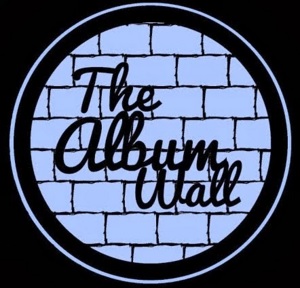You may remember The Low Anthem as that band who recorded their albums in an abandoned pasta sauce factory. They specialised in rickety folkish music; songs like Charlie Darwin and Matter of Time were gorgeously affecting, and yet so fragile that you worried you'd break them simply by listening to them. That empty pasta sauce factory was a hugely important part of The Low Anthem's whole deal, lending their recordings a cavernous sound that made you feel as if you'd stumbled across a beautiful, glistening gem in a dusty corner of an old, derelict building. I saw them on the main stage at the Green Man Festival in 2011, and their performance that evening sticks in my memory for the way that, by some strange alchemy, they managed to make a large natural amphitheatre situated in the shadow of a mountain feel cosy and achingly intimate. 2008's Oh My God, Charlie Darwin was their breakthrough album, but its successor, Smart Flesh, remains their crowning masterpiece in my opinion.
After a five-year hiatus, The Low Anthem released a new album last month. It's called Eyeland, and if you remember The Low Anthem as those quiet weirdos who would hang out in abandoned buildings and sing old-fashioned songs about apothecaries and ticket-takers...well, prepare to have your preconceptions shattered.
Dreams are a recurring theme throughout Eyeland, with the title seemingly referring to that hazy grey area that separates dreams from reality. The album is characterised by a chaotic, anything-goes approach, but that musical anarchy is punctuated by occasional pools of calm, and it's difficult to say for certain whether the more tranquil tracks like Behind the Airport Mirror and The Pepsi Moon are supposed to represent the muted sanity of the everyday (as opposed to the vivid, unhinged colour of the dreamworld) or the blissful sanctuary of sleep (as opposed to the frantic chaos of real life). Is the gentle opening track In Eyeland a sweet dream or a weary real-world sigh? Is the sonic nonsense of Wzgddrmtnwrdz supposed to evoke an exquisite, impossible dreamscape or the stress and the noise of modern life? Were the band who recorded the earthy, straightforward likes of The Horizon is a Beltway ever really The Low Anthem, or was that all just a facade, the chrysalis inside which this altogether more transcendental vision was gestating?
Eyeland revolves around questions like these, watching with a sage smirk as you struggle to sort dream from reality, memory from the present day. It's a long way from the Low Anthem we knew, but it's a stupendously brave step into a new dimension, and if you're willing to rise to the album's challenge then I think you'll be richly rewarded.
Sparklehorse fans will particularly enjoy this track, I reckon.


No comments:
Post a Comment